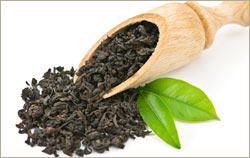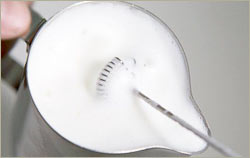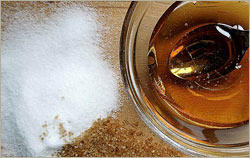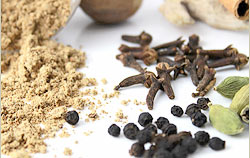Chai is steeped in a rich history. The name “chai” is actually the Hindi word for “tea”, which was derived from “cha”, the Chinese word for “tea”. In this case, the Hindi term chai means a mix of spices steeped into a tea-like beverage.
Discover the magic of Chai



What is Chai?
Recipes for chai vary across continents, cultures, towns and families. But the traditional ingredients of a spiced tea blend usually include black tea mixed with strong spices, like cinnamon, cardamom, cloves, ginger and black peppercorns. The spiced tea mixture is typically brewed strong with milk and sweetened with sugar or honey. However, the milky sweet tea treat we order in coffee and tea shops today has very little in common with the origins of Indian chai.
Chai origins

Legend has it that the origin of chai dates back more than 5,000 years, when a king in what is now India ordered a healing spiced beverage be created for use in Ayurveda, a traditional medicinal practice in which herbs and spices are used for healing. The heat from ginger and black pepper was believed to stimulate digestion; the antiseptic properties in cloves were thought to help relieve pain; cardamom was used as a mood elevator; cinnamon supported circulation and respiratory function; and star anise was known to freshen up the breath.
As the healing beverage spread across India a wide variety of spices were used to prepare the drink, depending on the region of the continent or even the neighborhood where the beverage was being made.
Believe it or not, original versions of “masala chai”, or “spiced tea”, contained no actual Camellia sinensis tea leaves. Milk and sugar were also later additions to the famous drink. The addition of black tea leaves, milk and sugar were popularized thousands of years later (in the mid-1800s) when the Camellia sinensis assamica tea plant variety was discovered in India and cultivated by the British, who ruled continent at the time and had an insatiable desire for strong black tea with milk and sugar.
Components of chai
Since traditional chai beverages can vary from town-to-town and family-to-family, there is no one recipe that defines chai. But the beverage typically consists of these ingredient categories:
 The Assam and Darjeeling black teas native to India are most popular to use as a chai base. But you’ll also find chai made with various types of green teas, the South American herb yerba mate or the South African herb rooibos. You may also find completely herbal blends made only from spices and containing no tea leaves.
The Assam and Darjeeling black teas native to India are most popular to use as a chai base. But you’ll also find chai made with various types of green teas, the South American herb yerba mate or the South African herb rooibos. You may also find completely herbal blends made only from spices and containing no tea leaves.
Buying and storing chai
A chai blend, just like any other tea blend, won’t really go “bad”, but it can get stale. To ensure you’re getting the freshest chai, buy it from a reputable company that can tell you when and how the chai was processed and packaged. Chai tea blends can stay fresh for up to a year with these storage tips in mind:
Why Drink Tea?
When tea lovers are asked, "Why should I drink tea?" it would be easy to respond with "Why not?" There’s a whole host of benefits from sipping your favorite type of organic tea: from delighting your taste buds to enhancing your health routine, there’s no single, simple answer. You probably have your own list of reasons for loving a freshly steeped hot tea on a cold winter's day, or enjoying a glass of refreshing iced tea as a summer treat.

SIDEBAR NAVIGATION
- Our Beverages
- What we do
- FAQs
- What is Chai?
- Benefits of Chai
- Photos
- About Us
Our Services
About Company
Wholesalers to the hospitality and corporate industries of high quality chai & other beverages - dedicated to supply & deliver without compromise. Your partner you can count on.
Contact Info
Get in touch with us through any of the below listed means. We would love to hear from you.
 A Tundracode (Pty) Ltd Brand.
A Tundracode (Pty) Ltd Brand. 

 Indian chai is often made with buffalo milk. But the more Western version that we are used to is typically made with cow’s milk or dairy alternatives, like soy, almond, rice and coconut milks. You may also find yak or goat milk in other chai beverages around the world. Some recipes will have you steep a strong chai in water and then dilute it with milk. Other recipes have you simmer the chai spices in a mixture of water and milk or in all milk.
Indian chai is often made with buffalo milk. But the more Western version that we are used to is typically made with cow’s milk or dairy alternatives, like soy, almond, rice and coconut milks. You may also find yak or goat milk in other chai beverages around the world. Some recipes will have you steep a strong chai in water and then dilute it with milk. Other recipes have you simmer the chai spices in a mixture of water and milk or in all milk. White sugar, brown sugar and honey are typical chai sweeteners, but other sugars, like demerara, turbinado or coconut, may also be used. Jaggery, an unrefined cane sugar, is a popular sweetener used in parts of India.
White sugar, brown sugar and honey are typical chai sweeteners, but other sugars, like demerara, turbinado or coconut, may also be used. Jaggery, an unrefined cane sugar, is a popular sweetener used in parts of India.  The spices, or “masala”, used in chai will vary by region, climate and cultural preference. Traditionally, cardamom, ginger, cloves, cinnamon and black peppercorns were dominant chai spices and all readily available in India.
The spices, or “masala”, used in chai will vary by region, climate and cultural preference. Traditionally, cardamom, ginger, cloves, cinnamon and black peppercorns were dominant chai spices and all readily available in India.